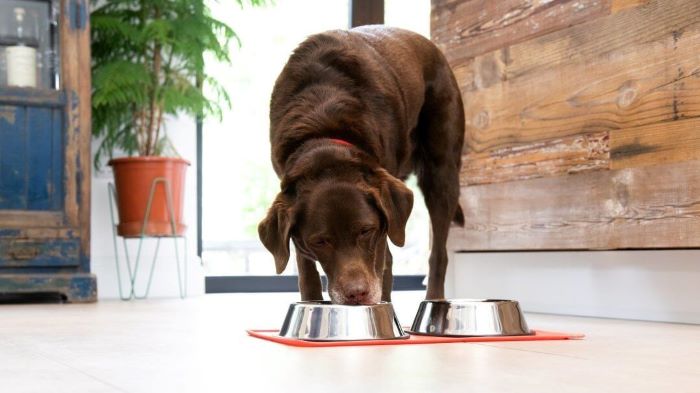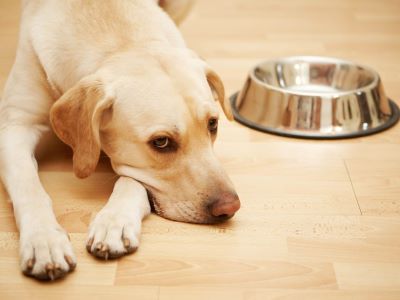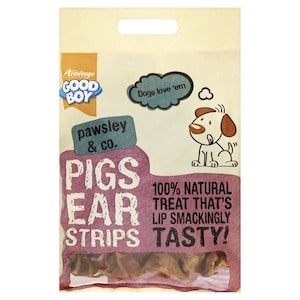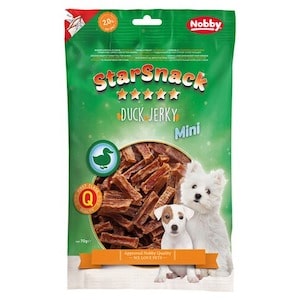Black pudding might be the favourite start of your day, filling the meaty taste of the exotic breakfast plate. With this, you might also want to share the tasty bite with your furry companion. But, is it good for your dog to have black pudding?

Well, many people consider that black pudding has an acquired taste, especially for those who are not used to it. So goes with the dog, it is a question of doubt, whether he will like the taste or not. But before that, can dogs eat black pudding?
You Might Also Like:
What is a Black Pudding?
Black pudding is a type of delicacy found mainly in the UK and Ireland. Black pudding is made from animal blood, especially that of a pig. It is a common accompaniment to a fully-cooked breakfast, served as a side dish or a taste enhancer. It is also sometimes referred to as ‘Blood Sausage‘.
The primary ingredients of a black pudding are beef or pork blood with pork fat or beef suet and a cereal, usually oatmeal, oat groats or barley groats. Along with that, it includes some herbs and spices. These fillings are added to a case, forming a cylindrical sausage. The sausage is grilled, boiled or fried as per convenience and cut into round or crumbled into small pieces.
Can Dogs Eat Black Pudding?
Many paw parents who are fond of eating black pudding generally ask, can dogs eat black pudding? And the answer to this is a constrained yes! Your pet can eat it but only in moderation. You cannot serve your dog black pudding as a whole meal.
The ingredients in a packaged black pudding vary from one manufacturer to the other. Some produce it with the basic components whereas others add heavy flavouring like onion, garlic or herbs and spices. Therefore, it is always a good idea to check the ingredients before feeding your pup as added flavouring can have detrimental effects on your dog’s health.

The main component of black pudding is animal blood. Saying so, blood contains a high amount of iron and zinc. On the other hand, animal fat blended with the blood is high in protein. It also contains other minerals like potassium and calcium. However, it has a high caloric level as well as it has fat and salt in high amounts.
As per Heidi Kos-Barber, DVM at petMD, “The typical history of a canine patient that is diagnosed with pancreatitis is one in which the dog ate a high-fat meal or got into the garbage.“
You can give your Fido black pudding stick available in the pet store. These sticks contain pet-friendly ingredients and so can be easily digested by the dog. Trainers give it to their dogs as a reward or a treat. Though black pudding stick guarantees quality ingredients, it might contain other hidden components too.[1] Hence, these too should be fed occasionally in a small quantity.
Can Dogs Eat Black Pudding Raw?
As long as the ingredients are innocuous, it is completely perfect for your dog to eat raw black pudding. Also, black pudding is partially cooked during the manufacturing process. However, if your dog is picky or has a sensitive stomach, then it will be difficult for him to digest the pudding.
However, when the packaged food is not stored correctly or exposed to high temperatures it can contain dangerous bacteria like Listeria and Salmonella.[2] These pathogens can harm the dog and lead to serious illness if your dog is unhealthy. If in doubt, check with your veterinarian to determine if raw black pudding is safe for your pet.
Benefits of Eating Black Pudding for Your Dog
You might think of feeding black pudding to your dog frequently. However, black pudding is only beneficial if fed in small quantities occasionally. It is packed with a good source of protein and other nutrients which can complement a dog’s diet. It can be given as a high-value reward so that the dog actually understands its worth.
Black pudding is a good source of protein, zinc, potassium and calcium with being high in calories. It provides your dog with nutrients that are essential for muscle development and cell repair. These nutrients are beneficial in ensuring proper organ functionality too.
Black pudding contains protein and some nutrients that can complement your dog’s diet. However, it should only be fed occasionally and in moderation, similar to other human foods like scampi. This raises the question – are dogs allowed scampi?
Drawbacks of Black Pudding
Although black pudding has some benefits, its drawbacks preponderate them. Firstly, black pudding is a human food and so it always carries with it additional flavours, preservatives and spices. These components can be harmful to a dog. Due to their sensitive stomach, it might be indigestible for them.
Some spices like nutmeg, garlic or onion are toxic to dogs and hence it becomes important for you to check the labelling before buying a pack of black pudding. Depending on the ingredients used, some may contain toxic ingredients, and as a result, dogs may develop allergic reactions after consuming. If there are signs of physical symptoms, you may want to see a vet and address this immediately.

You can always grill or bake the raw pudding, but never fry it. The pudding already contains a high amount of fat and frying it means adding more oil and fat to it. They are difficult for dogs to digest and can cause pancreatitis, eventually leading to weight gain.[3] However, if your pup eats only a tiny bit of fried black pudding, it should not harm him. They definitely shouldn’t eat a whole slice or eat it regularly though.
Moreover, black pudding contains a lot of salt. Such an amount is enough to dehydrate your dog and may lead to sodium poisoning. For dogs, the requirement of salt is even less than that of ours and thus you should take extra care while dealing with the nutritional requirements of the pet. High salt levels can lead to digestive upsets, obesity and kidney problems.
According to Dr Jerry Klein, DVM, Chief Veterinary Officer for the American Kennel Club, moderate feeding of salty food cannot cause sodium poisoning. However, excessively salty foods are not good for dogs, especially for those that have certain medical issues such as heart disease.
You should be cautious about feeding your dog smoked haddock as well. Like black pudding, it is high in salt which can lead to dehydration and sodium poisoning in dogs. “Can dogs eat smoked haddock?” will give your more detailed information on smoked haddock.
FAQs
Are black puddings good for dogs?
Eating too much black pudding can make your dog sick with vomiting or diarrhoea, but the high fat and salt content could lead to serious issues like pancreatitis. Because of these risks, it’s best to feed it very rarely(to healthy dogs) or not at all(to unhealthy dogs).
What are the benefits of black pudding?
Black pudding is a good source of protein, zinc, potassium and calcium with being high in calories. It provides your dog with nutrients that are essential for muscle development and cell repair. These nutrients are beneficial in ensuring proper organ functionality too.
Is black pudding healthy for dogs?
Some black pudding recipes are high in saturated fat and salt, which are unhealthy for dogs. Excessive consumption can lead to digestive upset, obesity, and kidney problems. Black pudding might contain toxic ingredients for dogs, such as onion, garlic, and other spices.
Overview
So, can dogs eat black pudding? —To conclude, black pudding is not a daily meal for your pup. Feeding it in a large quantity can be harmful to your dog. You should look for appropriate ingredients considering your fido’s dietary needs and restrictions. Calories, fat and salt are the three main components you should avoid to keep your dog healthy. Thus, it would be better to keep the black pudding away from your dog if possible.
A tiny piece of black pudding once in a blue moon is acceptable. But, they cannot eat a lot of it as it can lead to serious health issues. At last, it is always advisable to consult a veterinarian before introducing your dog to new food. Happy feeding!
Similar to black pudding, cockles are high in salt content which can cause dehydration and other health issues in dogs. It’s best to avoid feeding cockles to dogs regularly. “Can dogs eat cockles?” provides a more detailed information if you’re considering to give cockles to your canine friend.
References:
- Team, C. N. (2017, August 8). Why you shouldn’t judge a pet food by its ingredient list. Clinical Nutrition Service at Cummings School
- People foods to avoid feeding your pets. (n.d.). ASPCA
- Pancreatitis in dogs | VCA Animal Hospitals. (n.d.). VCAhospitals






